- Home
- Nora Roberts
Rebellion & In From The Cold Page 2
Rebellion & In From The Cold Read online
Page 2
When the door opened, Serena stumbled back. She saw the red coat, heard the jangle of spurs. Then she saw her mother, naked, bruised, her beautiful hair a wild mass around her face and shoulders. Fiona fell to her knees at Serena’s feet.
“Mama.” Serena knelt beside her, touched a tentative hand to her shoulder. She’d seen her mother weep before, but not like this, not these silent, hopeless tears. Because Fiona’s skin was cold to the touch, Serena dragged a blanket from the chest and wrapped it around her.
While she listened to the dragoons ride off, Serena held her mother with one arm and cuddled Gwen and Malcolm with the other. She had only the vaguest understanding of what had happened, but it was enough to make her hate, and to make her vow revenge.
Chapter 1
London, 1745
Brigham Langston, the fourth earl of Ashburn, sat at breakfast in his elegant town house and frowned over the letter. It was certainly one he’d been expecting, one he’d been waiting and watching for. Now that it was here, he read each word carefully, his gray eyes serious and his full mouth firm. It wasn’t often a man received a letter that could change his life.
“Damn it, Brig, how long are you going to keep me waiting?” Coll MacGregor, the quick-tempered, redheaded Scot who had been Brigham’s companion on certain journeys through Italy and France, seemed unable to sit quietly while Brigham read.
In answer, Brigham merely lifted one narrow hand, white-skinned and foaming with lace at the wrist. He was accustomed to Coll’s outbursts, and for the most part enjoyed them. But this time, this very important time, he would hold his friend off until he’d read the letter through again.
“It’s from him, is it not? Damn you to hell and back, it is from him. From the Prince.” Coll pushed away from the table to pace. Only the manners hammered into him by his mother kept him from tearing the letter from Brigham’s hand. Although, the knowledge that despite the difference in size and girth, Brigham could hold his own in a fight might also have played a certain role in his decision. “I’ve as much right as you.”
Brigham looked up at that, letting his gaze pass over the man who was now striding around the small salon with enough force to make the china rattle. Though his muscles were tense and his mind was shooting off in a dozen directions, Brigham’s voice was mild.
“Of course you do, but the letter is, nonetheless, addressed to me.”
“Only because it’s easier to smuggle a letter to the high-and-mighty English earl of Ashburn than it is to a MacGregor. We’re all under suspicion of being rebels in Scotland.” Coll’s sharp green eyes were alight with challenge. When Brigham merely returned to the letter, Coll swore again and dropped into his chair. “You’re enough to try a man’s soul.”
“Thank you.” Setting the letter beside his plate, Brigham poured more coffee. His hand was as steady as it was when he gripped the hilt of a sword or the butt of a pistol. And, indeed, this letter was a weapon of war. “You are quite right on all counts, my dear. The letter is from Prince Charles.” Brigham sipped his coffee.
“Well, what does he say?”
When Brigham indicated the letter with a wave of his hand, Coll pounced on it. The missive was written in French, and though his command of the language was not as good as Brigham’s, he struggled through it.
As he did, Brigham studied the room around him. The wallpaper had been chosen by his grandmother, a woman he remembered as much for her soft Scottish burr as for her stubbornness. It was a deep, glassy blue that she’d said reminded her of the lochs of her homeland. The furnishings were elegant, almost delicate, with their sweeping curves and gilt edges. The graceful Meissen porcelain figurines she had prized still stood on the little round table by the window.
As a boy he’d been allowed to look but not to touch, and his fingers had always itched to hold the statue of the shepherdess with the long porcelain hair and the fragile face.
There was a portrait of Mary MacDonald, the strong-willed woman who had become Lady Ashburn. It stood over the crackling fire and showed her at an age very close to what her grandson claimed now. She’d been tall for a woman and reed-slim, with a glorious mane of ebony hair around a narrow, fine-boned face. There was a look in the way she tilted her head that said she could be persuaded but not forced, asked but not commanded,
The same features, the same coloring, had been passed down to her grandson. They were no less elegant in their masculine form—the high forehead, the hollowed cheeks and full month. But Brigham had inherited more than his height and his gray eyes from Mary. He’d also inherited her passions and her sense of justice.
He thought of the letter, of the decisions to be made, and toasted the portrait.
You’d have me go, he thought. All the stories you told me, that belief in the rightness of the Stuart cause you planted in my head during the years you raised and cared for me. If you were still alive, you’d go yourself. So how can I not?
“So it’s time.” Coll folded the letter. In his voice, in his eyes, were both excitement and tension. He was twenty-four, only six months younger than Brigham, but this was a moment he had been awaiting for most of his life.
“You have to learn to read between the lines, Coll.” This time Brigham rose. “Charles is still holding out hope of support from the French, though he’s beginning to realize King Louis would rather talk than act.” Frowning, he twitched back the curtain and looked out at his dormant gardens. They would explode with color and scent in the spring. But it was unlikely he would be there to see them in the spring.
“When we were at court, Louis was more than interested in our cause. He has no more liking for the Hanoverian puppet on the throne than we,” Coll said.
“No, but that doesn’t mean he’ll open his coffers to the Bonnie Prince and the Stuart cause. Charles’s notion of fitting out a frigate and sailing for Scotland seems more realistic. But these things take time.”
“Which is where we come in.”
Brigham let the drapes fall back into place. “You know the mood of Scotland better than I. How much support will he get?”
“Enough.” With the confidence of pride and youth, Coll grinned. “The clans will rise for the true king and fight to the man behind him.” He rose then, knowing what his friend was asking. Brigham would be risking more than his life in Scotland. His title, his home and his reputation could be lost. “Brig, I could take the letter, go to my family and from there spread word throughout the Highland clans. It isn’t necessary for you to go, as well.”
One black brow rose, and Brigham nearly smiled. “I’m of so little use?”
“To hell with that.” Coll’s voice was bluff, his gestures wide. Both were as much a part of him as the rumbling cadences of his homeland and his fierce pride in it. “A man like you, one who knows how to talk, how to fight, an English aristocrat willing to join the rebellion? No one knows better than I just what you can do. After all, you saved my life more than once in Italy and, aye, in France, as well.”
“Don’t be boring, Coll.” Brigham flicked at the lace at his wrist. “It’s unlike you.”
Coll’s wide face folded into a grin. “Aye, and there’s something to be said for the way you can turn into the earl of Ashburn in the blink of an eye.”
“My dear, I am the earl of Ashburn.”
Humor kindled in Coll’s eyes. When they stood together like this, the contrasts between the men were marked. Brigham with his trim build, Coll with his brawny one. Brigham with his elegant, even languid manners, Coll rough-and-ready. But no one knew better than the Scot just what lay beneath the well-cut coats and the lace.
“It wasn’t the earl of Ashburn who fought back-to-back with me when our coach was attacked outside of Calais. It wasn’t the earl of Ashburn who damned near drank me, a MacGregor, under the table in that grimy little gaming hell in Rome.”
“I assure you it was, as I remember both incidents very well.”
Coll knew better than to banter words with Brigham. “Brigham, be
serious. As the earl of Ashburn you deserve to stay in England, go to your balls and card parties. You could still do the cause good here, with your ear to the ground.”
“But?”
“If I’m going to fight, I’d like to have you beside me. Will you come?”
Brigham studied his friend, then shifted his gaze up and beyond, to the portrait of his grandmother. “Of course.”
* * *
The weather in London was cold and dank. It remained so three days later, when the two men began their journey north. They would travel to the border in the relative comfort of Brigham’s coach, then take the rest on horseback.
For anyone who remained in London during the miserable January weather and chose to inquire, Lord Ashburn was making a casual journey to Scotland to visit the family of his friend.
There were a few who knew better, a handful of staunch Tories and English Jacobites whom Brigham trusted. To them he left in trust his family home, Ashburn Manor, as well as his house in London and the disposition of his servants. What could be taken without undue notice, he took. What could not, he left behind with the full knowledge that it probably would be months, perhaps even years, before he could return to claim them. The portrait of his grandmother still stood above the mantel, but on a sentimental whim he’d had the statue of the shepherdess wrapped for the journey.
There was gold, a good deal more than was needed for a visit to the family of a friend, in a locked chest beneath the floor of the coach.
They were forced to move slowly, more slowly than Brigham cared for, but the roads were slick, and occasional flurries of snow had the driver walking the team. Brigham would have preferred a good horse beneath him and the freedom of a gallop.
A look out the window showed him that the weather to the north could only be worse. With what patience he’d learned to cultivate, Brigham sat back, rested his booted feet on the opposite seat, where Coll sat dozing, and let his thoughts drift back to Paris, where he had spent a few glittering months the year before. That was the France of Louis XV: opulent, glamorous, all light and music. There had been lovely women there, with their powdered hair and scandalous gowns. It had been easy to flirt, and more. A young English lord with a fat purse and a talent for raillery had little trouble making a place in society.
He had enjoyed it, the lustiness and laziness of it. But it was also true that he’d begun to feel restless, fretting for action and purpose. The Langstons had always enjoyed the intrigue of politics as much as the sparkle of balls and routs. Just as for three generations they had silently sworn their loyalty to the Stuarts—the rightful kings of England.
So when Prince Charles Edward had come to France, a magnetic man of courage and energy, Brigham had offered his aid and his oath. Many would have called him traitor. No doubt the fusty Whigs who supported the German who now sat upon the English throne would have wished Brigham hanged as one if they had known. But Brigham’s loyalty was to the Stuart cause, to which his family had always held true, not to the fat German usurper George. He’d not forgotten the stories his grandmother had told him of the disastrous rebellion of ‘15, and of the proscriptions and executions before and after it.
As the landscape grew wilder and the city of London seemed so far away he thought once again that the House of Hanover had done little—had not even tried—to endear itself to Scotland. There had always been the threat of war, from the north or from across the Channel. If England was to be made strong, it would need its rightful king.
It had been more than the Prince’s clear eyes and fair looks that had decided Brigham to stand with him. It had been his drive and ambition, and perhaps his youthful confidence that he could, and would, claim what was his.
* * *
They stopped for the night at a small inn where the Lowland plains started to rise into the true Highlands. Brigham’s gold, and his title, earned them dry sheets and a private parlor. Fed and warmed by the leaping fire, they diced and drank too much ale while the wind swept down from the mountains and hammered at the walls. For a few hours they were simply two well-to-do young men who shared a friendship and an adventure.
“Damn your bones, Brig, you’re a lucky bastard tonight.”
“So it would seem.” Brigham scooped up the dice and the coins. His eyes, bright with humor, met Coll’s. “Shall we find a new game?”
“Roll.” Coll grinned and shoved more coins to the center of the table. “Your luck’s bound to change.” When the dice fell, he snickered. “If I can’t beat that …” When his roll fell short, he shook his head. “Seems you can’t lose. Like the night in Paris you played the duke for the affections of that sweet mademoiselle.”
Brigham poured more ale. “With or without the dice, I’d already won the mademoiselle’s affections.”
Laughing thunderously, Coll slapped more coins on the table. “Your luck can’t hang sunny all the time. Though I for one hope it holds for the months to come.”
Brigham swept his gaze upward and assured himself that the door to the parlor was closed. “It’s more a matter of Charles’s luck than mine.”
“Aye, he’s what we’ve needed. His father has always been lacking in ambition and too sure of his own defeat.” He lifted his tankard of ale. “To the Bonnie Prince.” “He’ll need more than his looks and a clever tongue.” Coll’s red brows rose. “Do you doubt the MacGregors?” “You’re the only MacGregor I know.” Before Coll could begin an oration on his clan, Brigham asked quickly, “What of your family, Coll? You’ll be pleased to see them again.”
“It’s been a long year. Not that I haven’t enjoyed the sights of Rome and Paris, but when a man’s born in the Highlands, he prefers to die there.” Coll drank deeply, thinking of purple moors and deep blue lochs. “I know the family is well from the last letter my mother sent me, but I’ll feel better seeing for myself. Malcolm will be nigh on ten now, and a hellion, I’m told.” He grinned, full of pride. “Then so are we all.”
“You told me your sister was an angel.”
“Gwen.” The tenderness invaded his voice. “Little Gwen. So she is, sweet-tempered, patient, pretty as new cream.”
“I’m looking forward to meeting her.”
“And still in the schoolroom,” Coll told him. “I’ll be around to see you don’t forget it.”
A little hazy with ale, Brigham tilted back in his chair. “You’ve another sister.”
“Serena.” Coll jiggled the dice box in his palm. “God knows the lass was misnamed. A wildcat she is, and I’ve the scars to prove it. Serena MacGregor has the devil’s own temper and a quick fist.”
“But is she pretty?”
“She’s not hard to look at,” said her brother. “My mother tells me the boys have started courting this past year, and Serena sends them off with boxed ears, scrambling for cover.”
“Perhaps they have yet to find the, ah, proper way to court her.”
“Hah! I crossed her once, and she grabbed my grandfather’s claymore from the wall and chased me into the forest.” The pride came through, if not the tenderness. “I pity the man who sets his sights on her.”
“An amazon.” Brigham pictured a strapping, ruddy-cheeked girl with Coll’s broad features and wild red hair. Healthy as a milkmaid, he imagined, and just as sassy. “I prefer the milder sort.”
“Isn’t a mild bone in her body, but she’s true.” The ale was swimming in Coll’s head, but that didn’t stop him from lifting the tankard again. “I told you about the night the dragoons came to Glenroe.”
“Yes.”
Coll’s eyes darkened with the memory. “After they’d finished shaming my mother and firing roofs, Serena nursed her. She was hardly more than a bairn herself, but she got my mother into bed and tended her and the children until we returned. There was a bruise on her face where that black bastard had knocked her aside, but she didn’t cry. She sat, dry-eyed, and told us the whole tale.”
Brigham laid a hand over his friend’s. “The time’s past for revenge, Co
ll, but not for justice.”
“I’ll take both,” Coll murmured, and tossed the dice again.
* * *
They started out early the next morning. Brigham’s head ached, but the cold, blustery air soon cleared it. They went on horseback, allowing the coach to follow at a sedate pace.
Now they were truly in the land he’d been told of as a child. It was wild and rough, with crags rising high and moors spread out and desolate. Prominent peaks pierced the milky gray of the sky, sometimes cut through with tumbling waterfalls and icy rivers thick with fish. In other places rocks were tumbled as though they had been dice rolled by a careless hand. It seemed an ancient place, one for gods and fairies, yet he saw an occasional cottage, smoke belching from the central opening in the thatch.
The ground was heaped with snow, and the wind blew it in sheets across the road. At times they were nearly blinded by it as Coll led the way up the rising, rut-filled hills. Caves opened out of rock. Here and there were signs that shelter had been taken in them. Lakes, their waters a dark, dangerous blue, were crusted at the edges with ice. The effects of the ale were whisked away by a damp cold that stung the air and penetrated even the layers of a greatcoat.
They rode hard when the land permitted, then picked their way through snowdrifts as high as a man’s waist. Cautious, they bypassed the forts the English had built and avoided the hospitality that would have been given unhesitatingly at any cottage. Hospitality, Coll had warned Brigham, would include questions about every aspect of their journey, their families and their destination. Strangers were rare in the Highlands, and prized for their news as much as their company.
Rather than risk the details of their journey being passed from village to village, they kept to the rougher roads and hills before stopping at a tavern to rest the horses and take their midday meal. The floors were dirt, the chimney no more than a hole in the roof that kept as much smoke in as it let out. The single cramped room smelled of its occupants and of yesterday’s fish. It was hardly a spot the fourth earl of Ashburn would be likely to frequent, but the fire was hot and the meat almost fresh.

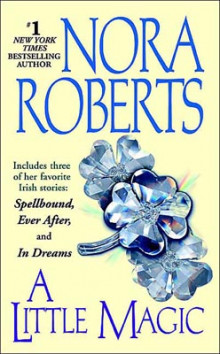 A Little Magic
A Little Magic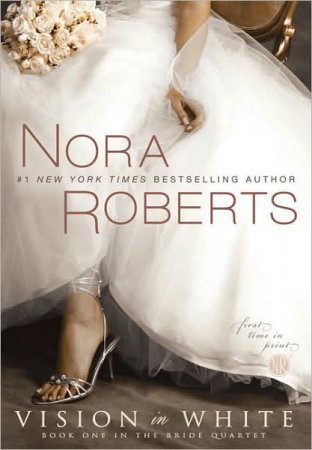 Vision in White
Vision in White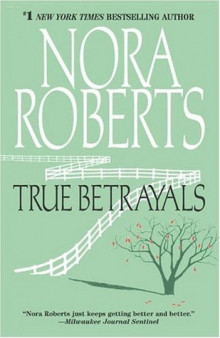 True Betrayals
True Betrayals The Next Always
The Next Always A Man for Amanda
A Man for Amanda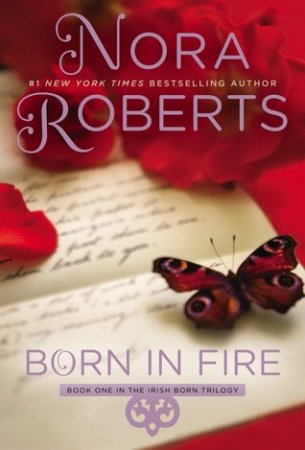 Born in Fire
Born in Fire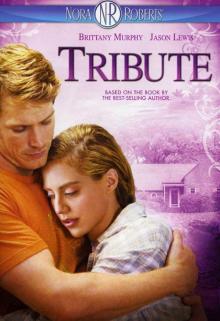 Tribute
Tribute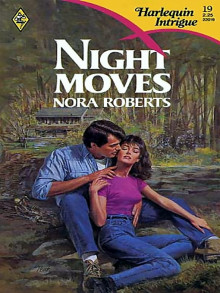 Night Moves
Night Moves Dance Upon the Air
Dance Upon the Air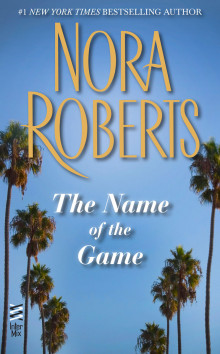 The Name of the Game
The Name of the Game Jewels of the Sun
Jewels of the Sun River's End
River's End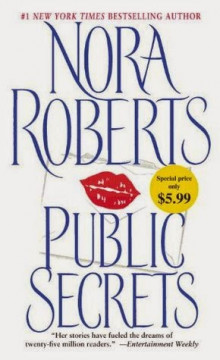 Public Secrets
Public Secrets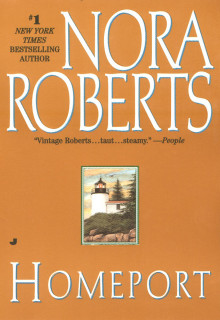 Homeport
Homeport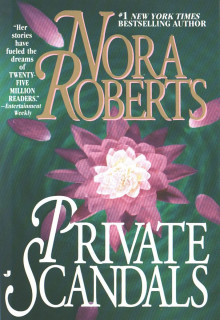 Private Scandals
Private Scandals The Witness
The Witness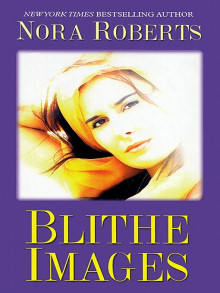 Blithe Images
Blithe Images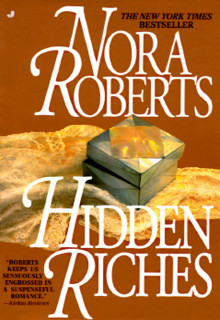 Hidden Riches
Hidden Riches Key of Light
Key of Light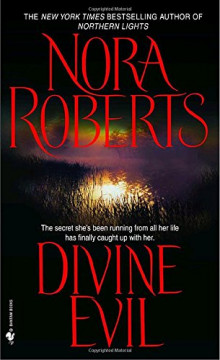 Divine Evil
Divine Evil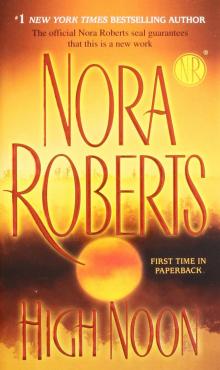 High Noon
High Noon Blue Dahlia
Blue Dahlia Sea Swept
Sea Swept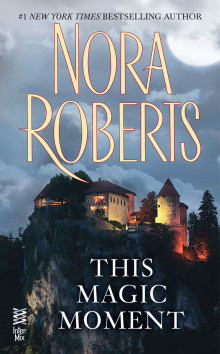 This Magic Moment
This Magic Moment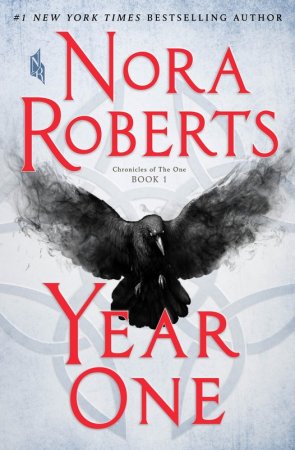 Year One
Year One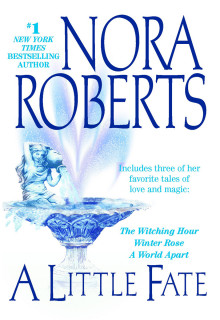 A Little Fate
A Little Fate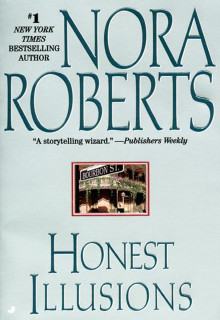 Honest Illusions
Honest Illusions The Reef
The Reef Shelter in Place
Shelter in Place The Hollow
The Hollow Holding the Dream
Holding the Dream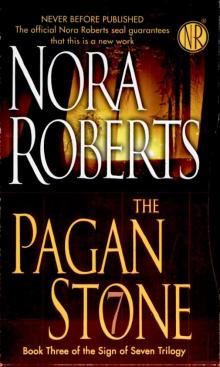 The Pagan Stone
The Pagan Stone Savour the Moment
Savour the Moment The Perfect Hope
The Perfect Hope Island of Glass
Island of Glass Happy Ever After
Happy Ever After Bed of Roses
Bed of Roses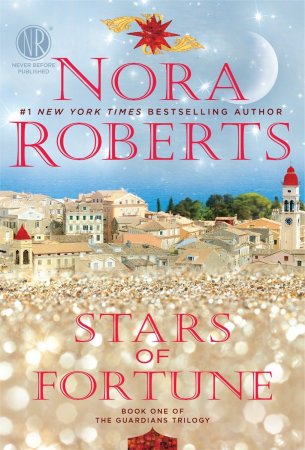 Stars of Fortune
Stars of Fortune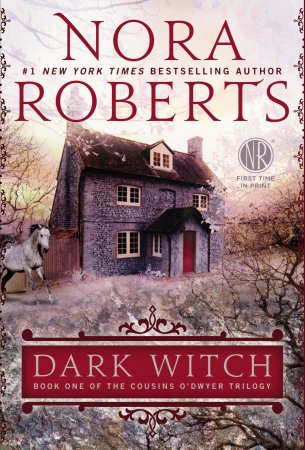 Dark Witch
Dark Witch The Return of Rafe MacKade
The Return of Rafe MacKade Chesapeake Blue
Chesapeake Blue The Perfect Neighbor
The Perfect Neighbor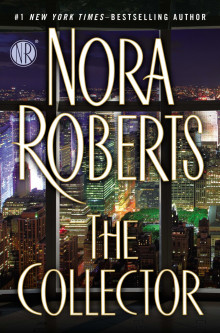 The Collector
The Collector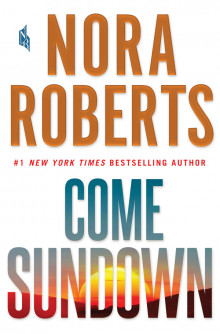 Come Sundown
Come Sundown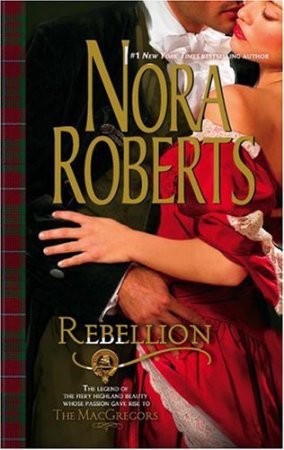 Rebellion
Rebellion Affaire Royale
Affaire Royale Daring to Dream
Daring to Dream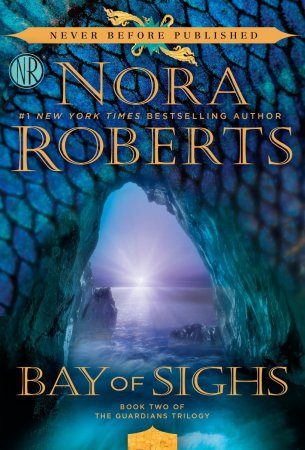 Bay of Sighs
Bay of Sighs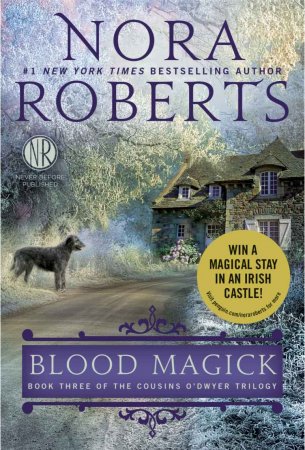 Blood Magick
Blood Magick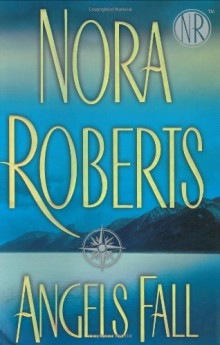 Angels Fall
Angels Fall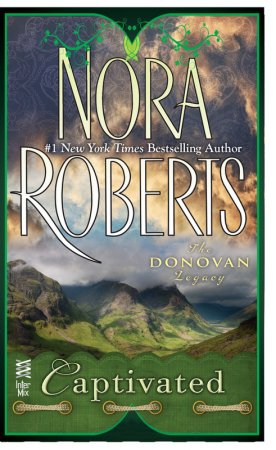 Captivated
Captivated The Last Boyfriend
The Last Boyfriend Irish Thoroughbred
Irish Thoroughbred Inner Harbor
Inner Harbor The Right Path
The Right Path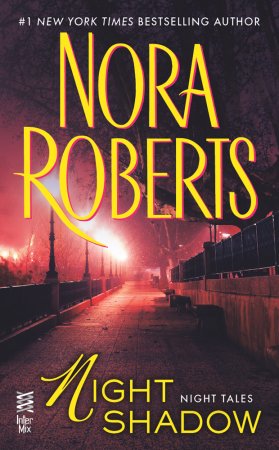 Night Shadow
Night Shadow The Heart of Devin MacKade
The Heart of Devin MacKade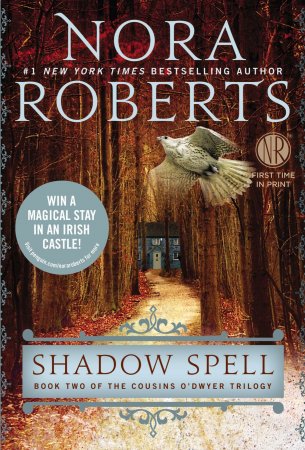 Shadow Spell
Shadow Spell The Playboy Prince
The Playboy Prince The Fall of Shane MacKade
The Fall of Shane MacKade Rising Tides
Rising Tides Command Performance
Command Performance Hidden Star
Hidden Star Cordina's Crown Jewel
Cordina's Crown Jewel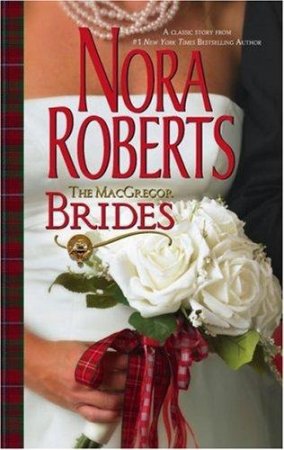 The MacGregor Brides
The MacGregor Brides The Pride of Jared MacKade
The Pride of Jared MacKade Born in Ice
Born in Ice Whiskey Beach
Whiskey Beach The Last Honest Woman
The Last Honest Woman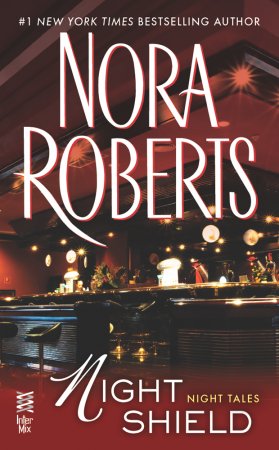 Night Shield
Night Shield Born in Shame
Born in Shame Secret Star
Secret Star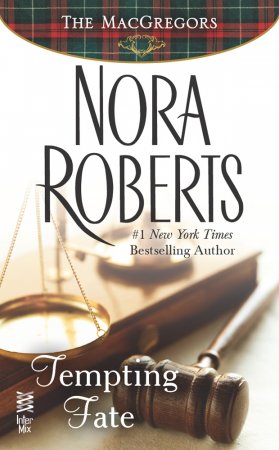 Tempting Fate
Tempting Fate Nightshade
Nightshade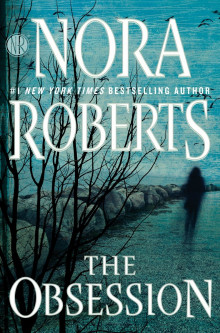 The Obsession
The Obsession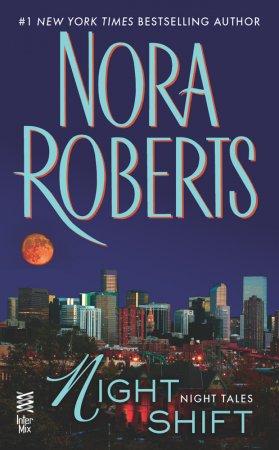 Night Shift
Night Shift Playing The Odds
Playing The Odds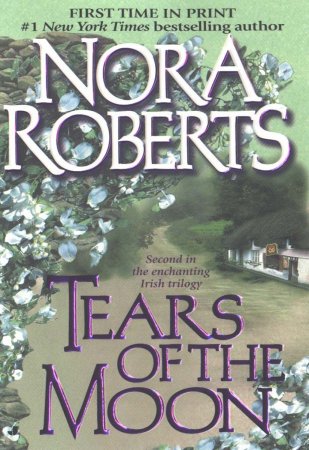 Tears of the Moon
Tears of the Moon One Man's Art
One Man's Art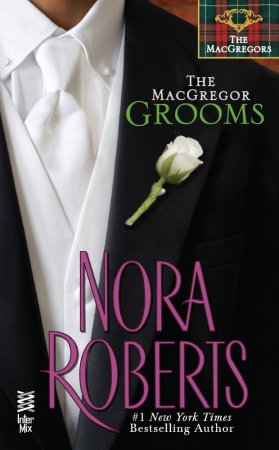 The MacGregor Groom
The MacGregor Groom Irish Rebel
Irish Rebel Morrigan's Cross
Morrigan's Cross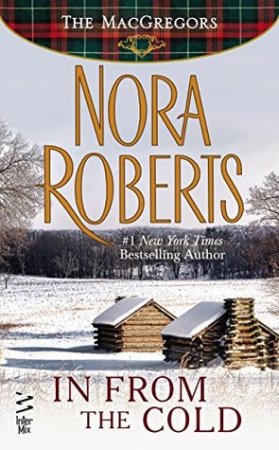 In From The Cold
In From The Cold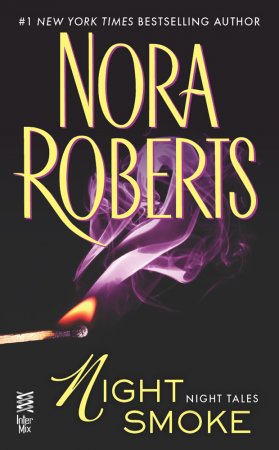 Night Smoke
Night Smoke Finding the Dream
Finding the Dream Red Lily
Red Lily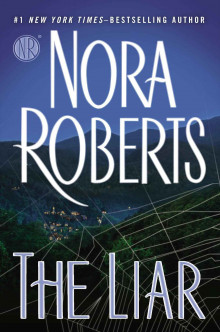 The Liar
The Liar Montana Sky
Montana Sky Heart of the Sea
Heart of the Sea All The Possibilities
All The Possibilities Opposites Attract
Opposites Attract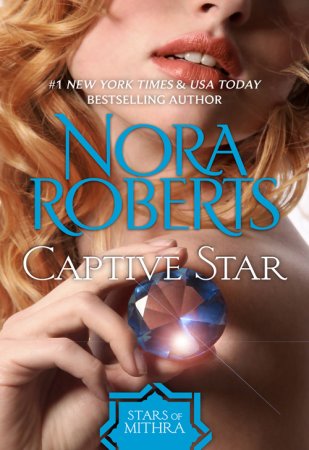 Captive Star
Captive Star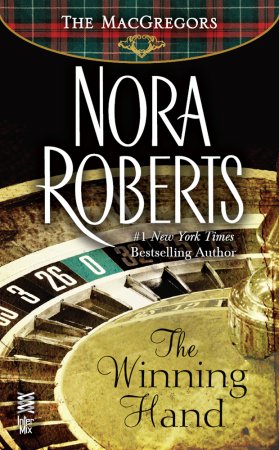 The Winning Hand
The Winning Hand Key of Valor
Key of Valor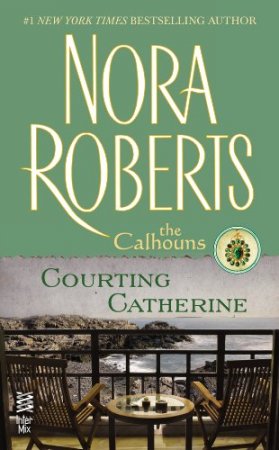 Courting Catherine
Courting Catherine Heaven and Earth
Heaven and Earth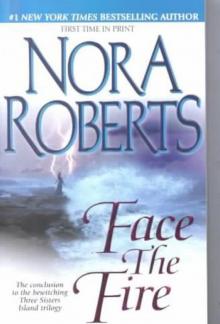 Face the Fire
Face the Fire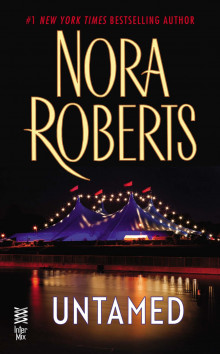 Untamed
Untamed Skin Deep
Skin Deep Enchanted
Enchanted Song of the West
Song of the West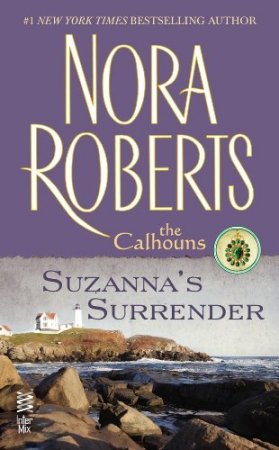 Suzanna's Surrender
Suzanna's Surrender Entranced
Entranced Dance of the Gods
Dance of the Gods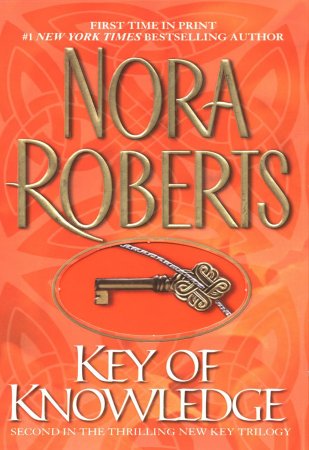 Key of Knowledge
Key of Knowledge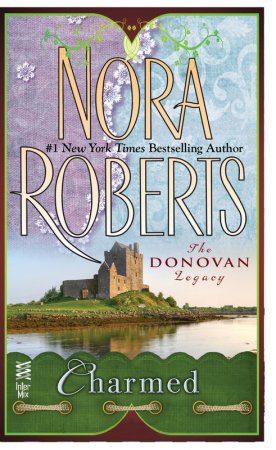 Charmed
Charmed For Now, Forever
For Now, Forever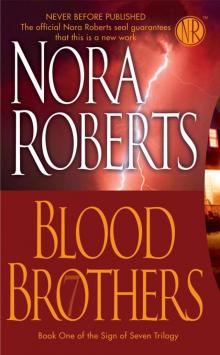 Blood Brothers
Blood Brothers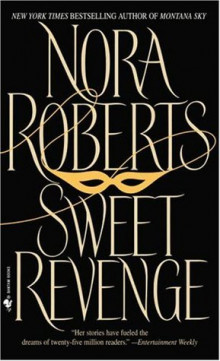 Sweet Revenge
Sweet Revenge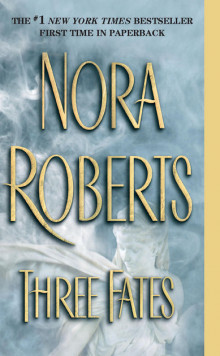 Three Fates
Three Fates Mind Over Matter
Mind Over Matter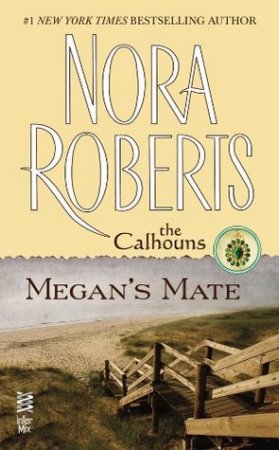 Megan's Mate
Megan's Mate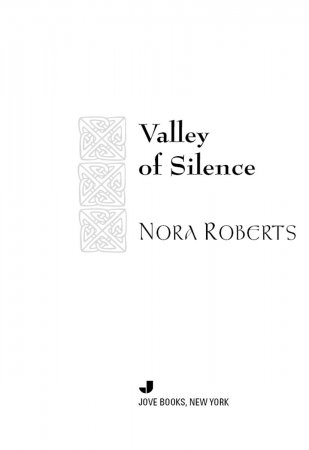 Valley of Silence
Valley of Silence Without A Trace
Without A Trace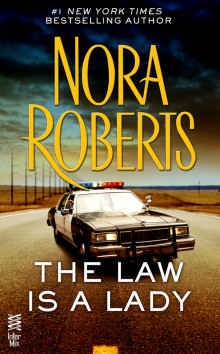 The Law is a Lady
The Law is a Lady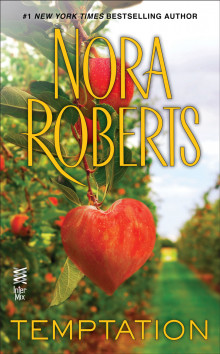 Temptation
Temptation Dance to the Piper
Dance to the Piper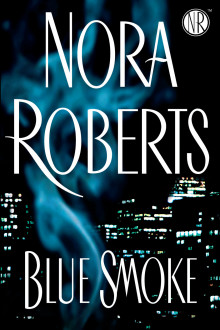 Blue Smoke
Blue Smoke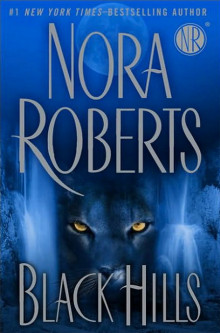 Black Hills
Black Hills The Heart's Victory
The Heart's Victory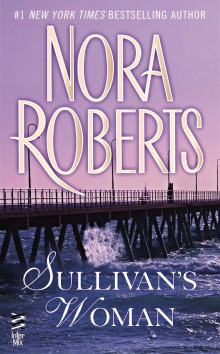 Sullivan's Woman
Sullivan's Woman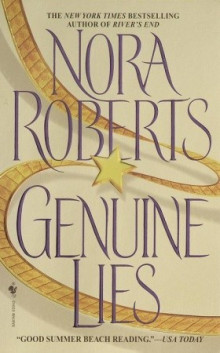 Genuine Lies
Genuine Lies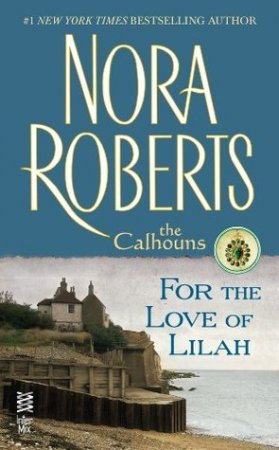 For the Love of Lilah
For the Love of Lilah Gabriel's Angel
Gabriel's Angel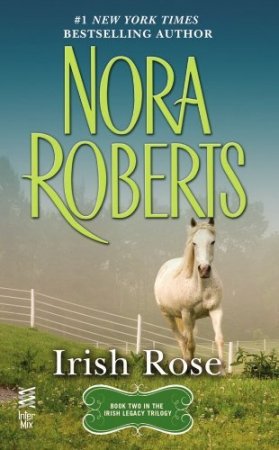 Irish Rose
Irish Rose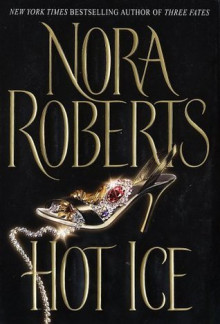 Hot Ice
Hot Ice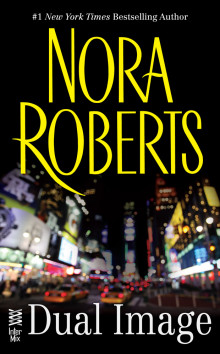 Dual Image
Dual Image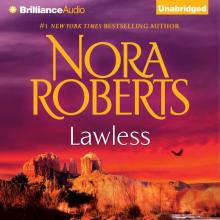 Lawless
Lawless Catch My Heart
Catch My Heart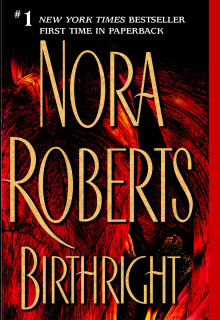 Birthright
Birthright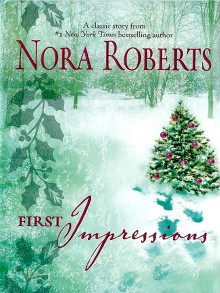 First Impressions
First Impressions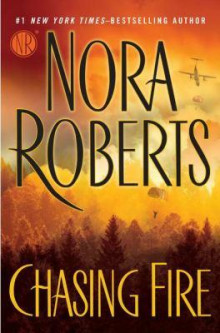 Chasing Fire
Chasing Fire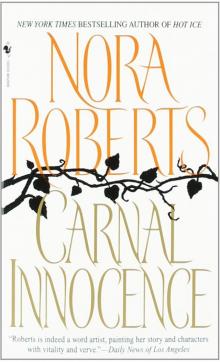 Carnal Innocence
Carnal Innocence Best Laid Plans
Best Laid Plans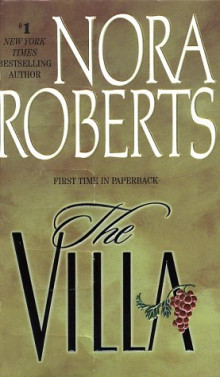 The Villa
The Villa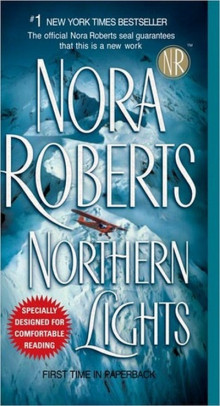 Northern Lights
Northern Lights Local Hero
Local Hero Island of Flowers
Island of Flowers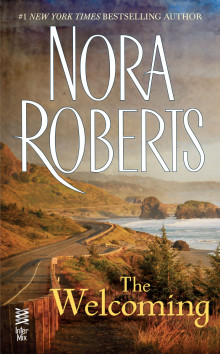 The Welcoming
The Welcoming All I Want for Christmas
All I Want for Christmas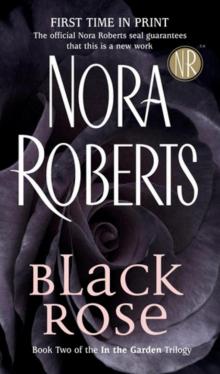 Black Rose
Black Rose Hot Rocks
Hot Rocks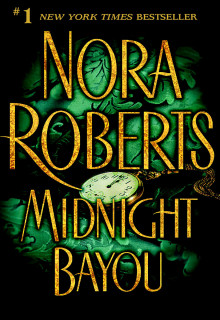 Midnight Bayou
Midnight Bayou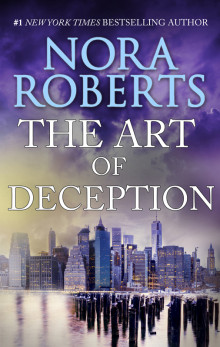 The Art of Deception
The Art of Deception From This Day
From This Day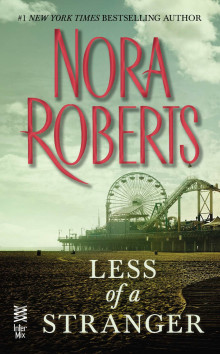 Less of a Stranger
Less of a Stranger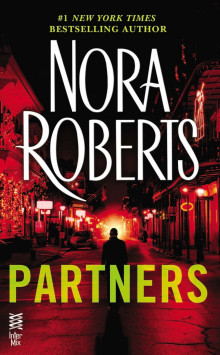 Partners
Partners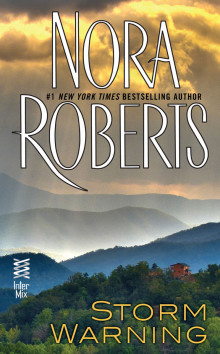 Storm Warning
Storm Warning Once More With Feeling
Once More With Feeling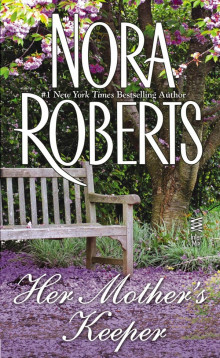 Her Mother's Keeper
Her Mother's Keeper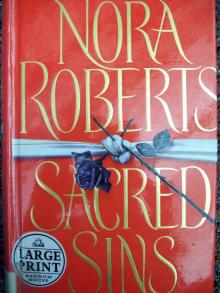 Sacred Sins
Sacred Sins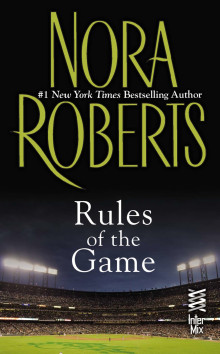 Rules of the Game
Rules of the Game Sanctuary
Sanctuary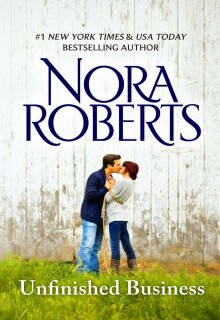 Unfinished Business
Unfinished Business Cordina's Royal Family Collection
Cordina's Royal Family Collection Dangerous Embrace
Dangerous Embrace One Summer
One Summer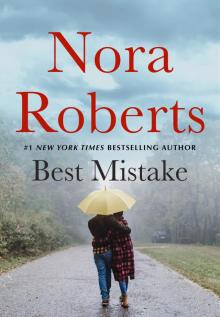 The Best Mistake
The Best Mistake Boundary Lines
Boundary Lines Under Currents
Under Currents The Stanislaski Series Collection, Volume 1
The Stanislaski Series Collection, Volume 1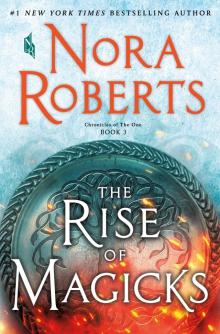 The Rise of Magicks
The Rise of Magicks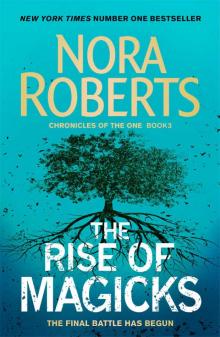 The Rise of Magicks (Chronicles of The One)
The Rise of Magicks (Chronicles of The One) The Awakening: The Dragon Heart Legacy Book 1
The Awakening: The Dragon Heart Legacy Book 1 Dance of Dreams
Dance of Dreams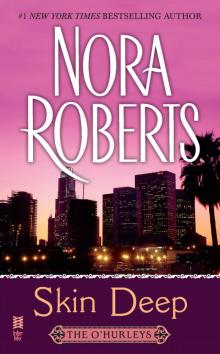 Skin Deep: The O'Hurleys
Skin Deep: The O'Hurleys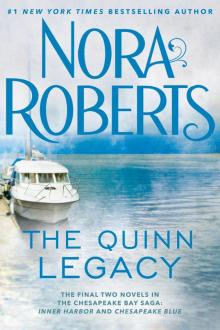 The Quinn Legacy: Inner Harbor ; Chesapeake Blue
The Quinn Legacy: Inner Harbor ; Chesapeake Blue![[Chronicles of the One 03.0] The Rise of Magicks Read online](http://i1.bookreadfree.com/11/chronicles_of_the_one_03_0_the_rise_of_magicks_preview.jpg) [Chronicles of the One 03.0] The Rise of Magicks
[Chronicles of the One 03.0] The Rise of Magicks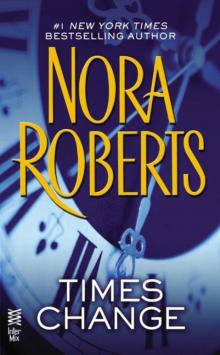 Times Change
Times Change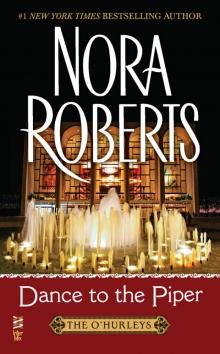 Dance to the Piper: The O'Hurleys
Dance to the Piper: The O'Hurleys Christmas In the Snow: Taming Natasha / Considering Kate
Christmas In the Snow: Taming Natasha / Considering Kate Waiting for Nick
Waiting for Nick Summer Desserts
Summer Desserts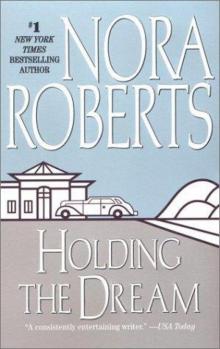 Dream 2 - Holding the Dream
Dream 2 - Holding the Dream The Novels of Nora Roberts, Volume 2
The Novels of Nora Roberts, Volume 2 In the Garden Trilogy
In the Garden Trilogy Eight Classic Nora Roberts Romantic Suspense Novels
Eight Classic Nora Roberts Romantic Suspense Novels Best Laid Plans jh-2
Best Laid Plans jh-2 From the Heart
From the Heart Holiday Wishes
Holiday Wishes Dream 1 - Daring to Dream
Dream 1 - Daring to Dream Second Nature
Second Nature Summer Pleasures
Summer Pleasures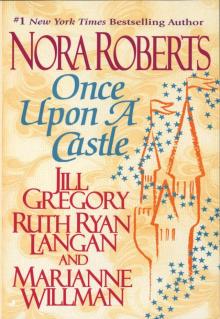 Once Upon a Castle
Once Upon a Castle Stars of Mithra Box Set: Captive StarHidden StarSecret Star
Stars of Mithra Box Set: Captive StarHidden StarSecret Star Impulse
Impulse The Irish Trilogy by Nora Roberts
The Irish Trilogy by Nora Roberts The Pride Of Jared Mackade tmb-2
The Pride Of Jared Mackade tmb-2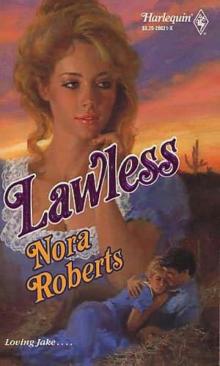 Lawless jh-3
Lawless jh-3 Taming Natasha
Taming Natasha Endless Summer
Endless Summer Bride Quartet Collection
Bride Quartet Collection Happy Ever After tbq-4
Happy Ever After tbq-4 Heart Of The Sea goa-3
Heart Of The Sea goa-3 Search for Love
Search for Love Once upon a Dream
Once upon a Dream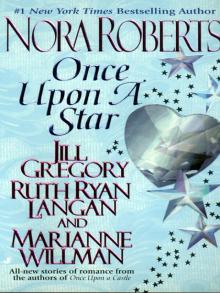 Once Upon a Star
Once Upon a Star Dream Trilogy
Dream Trilogy Risky Business
Risky Business The Novels of Nora Roberts, Volume 3
The Novels of Nora Roberts, Volume 3 Dream 3 - Finding the Dream
Dream 3 - Finding the Dream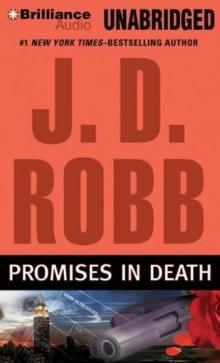 Promises in Death id-34
Promises in Death id-34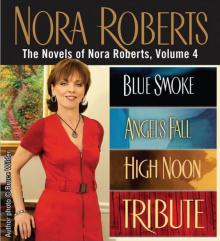 The Novels of Nora Roberts, Volume 4
The Novels of Nora Roberts, Volume 4 The Perfect Hope ib-3
The Perfect Hope ib-3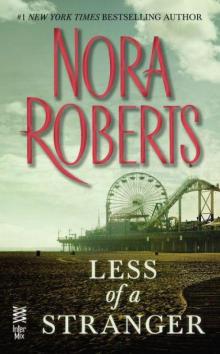 Less than a Stranger
Less than a Stranger Savour the Moment: Now the Big Day Has Finally Arrived, It's Time To...
Savour the Moment: Now the Big Day Has Finally Arrived, It's Time To... Convincing Alex
Convincing Alex Bed of Roses tbq-2
Bed of Roses tbq-2 Savour the Moment tbq-3
Savour the Moment tbq-3 Lessons Learned
Lessons Learned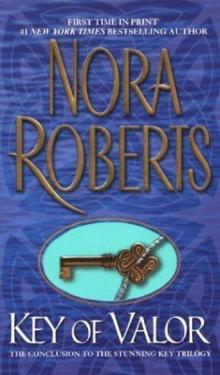 Key Of Valor k-3
Key Of Valor k-3 Red lily gt-3
Red lily gt-3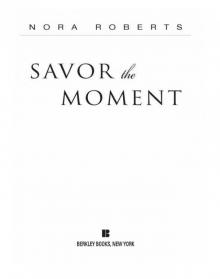 Savor the Moment
Savor the Moment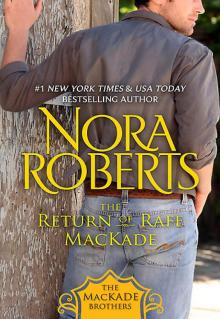 The Return Of Rafe Mackade tmb-1
The Return Of Rafe Mackade tmb-1 For The Love Of Lilah tcw-3
For The Love Of Lilah tcw-3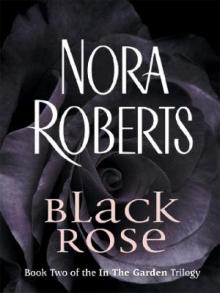 Black Rose gt-2
Black Rose gt-2 Novels: The Law is a Lady
Novels: The Law is a Lady Chesapeake Bay Saga 1-4
Chesapeake Bay Saga 1-4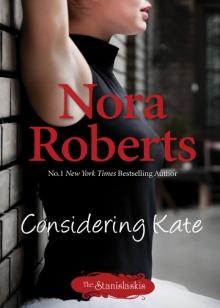 Considering Kate
Considering Kate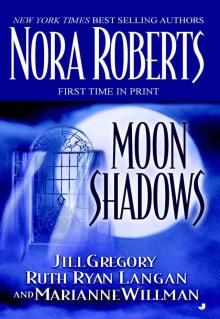 Moon Shadows
Moon Shadows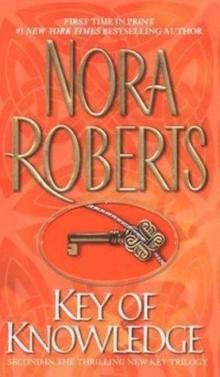 Key of Knowledge k-2
Key of Knowledge k-2 The Sign of Seven Trilogy
The Sign of Seven Trilogy Once Upon a Kiss
Once Upon a Kiss The Novels of Nora Roberts, Volume 5
The Novels of Nora Roberts, Volume 5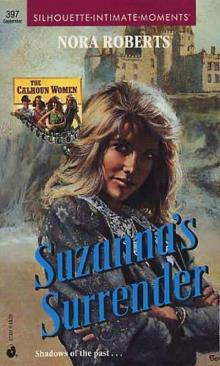 Suzanna's Surrender tcw-4
Suzanna's Surrender tcw-4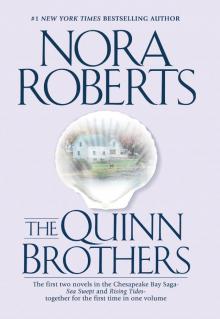 The Quinn Brothers
The Quinn Brothers Falling for Rachel
Falling for Rachel Brazen Virtue
Brazen Virtue Time Was
Time Was The Gallaghers of Ardmore Trilogy
The Gallaghers of Ardmore Trilogy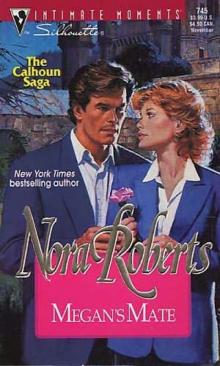 Megan's Mate tcw-5
Megan's Mate tcw-5 Loving Jack jh-1
Loving Jack jh-1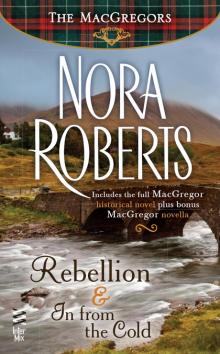 Rebellion & In From The Cold
Rebellion & In From The Cold Blue Dahlia gt-1
Blue Dahlia gt-1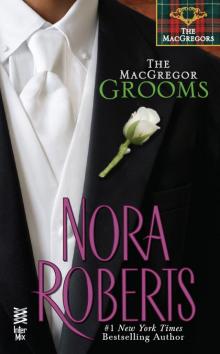 The MacGregor Grooms
The MacGregor Grooms The Next Always tibt-1
The Next Always tibt-1 The Heart Of Devin Mackade tmb-3
The Heart Of Devin Mackade tmb-3 The Novels of Nora Roberts Volume 1
The Novels of Nora Roberts Volume 1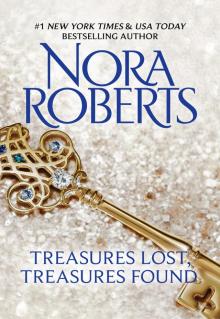 Treasures Lost, Treasures Found
Treasures Lost, Treasures Found Nora Roberts's Circle Trilogy
Nora Roberts's Circle Trilogy The Key Trilogy
The Key Trilogy The Fall Of Shane Mackade tmb-4
The Fall Of Shane Mackade tmb-4 A Will And A Way
A Will And A Way Jewels of the Sun goa-1
Jewels of the Sun goa-1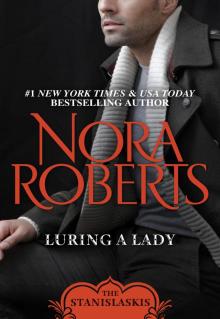 Luring a Lady
Luring a Lady